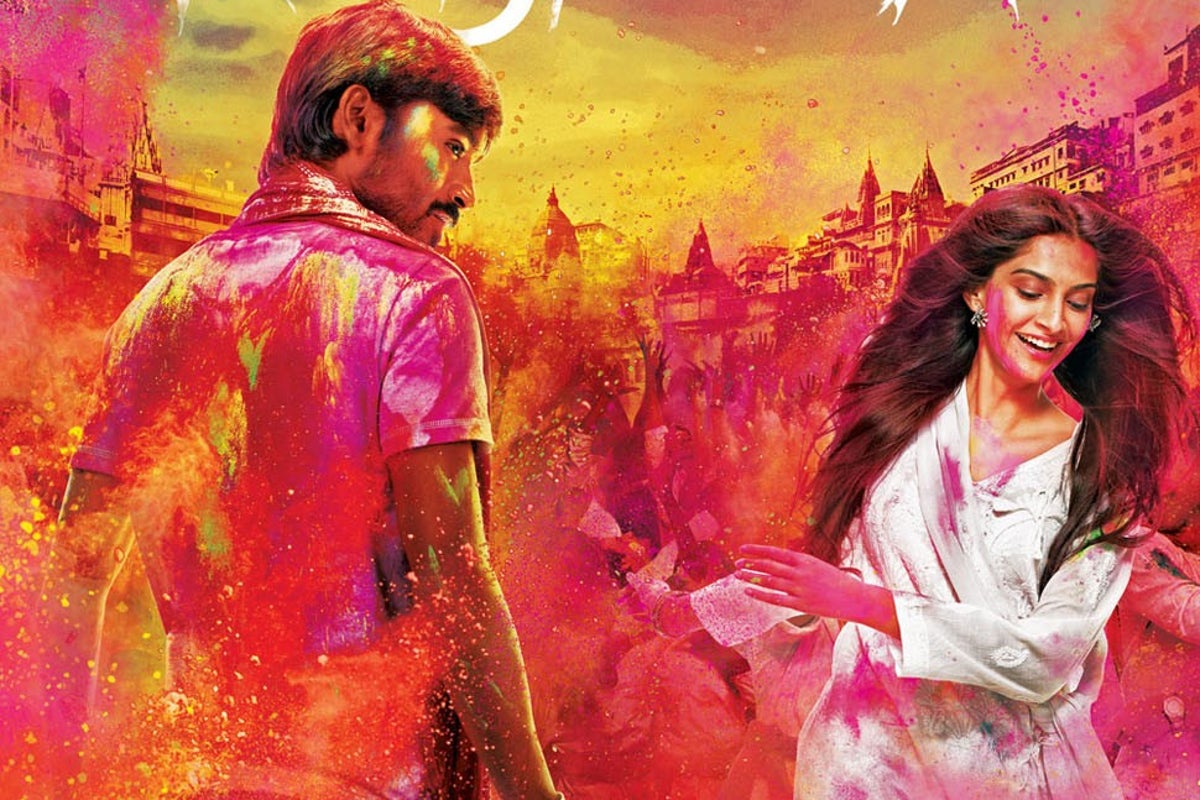A 2013 Bollywood hit is being re-released with an AI-generated happy ending without informing either its stars or director.
The Hindi romantic drama Raanjhanaa is set to return to theatres in the South Indian state Tamil Nadu on 1 August under its dubbed Tamil title Ambikapathy, with an altered climax generated using artificial intelligence, according to the Press Trust of India.
Directed by Aanand L Rai and produced by Eros International, the film starred Tamil actor Dhanush in his Hindi debut alongside Sonam Kapoor, and follows the story of Kundan (Dhanush), a spirited Hindu boy from Varanasi who harbours a lifelong love for Zoya (Kapoor), a Muslim girl from his neighbourhood.
The original version ended tragically with the death of Kundan, a finale that, according to Rai, was integral to the film’s emotional core. The new version replaces that with an ending in which Kundan survives.
According to Eros chief executive Pradeep Dwivedi, the new climax is meant to offer a “fresh emotional perspective” on the film for a new regional audience. He said Eros owned the “sole and exclusive copyright” to the film and that creatives like Rai, Dhanush and Kapoor had signed contracts waiving any “moral rights” to be involved in future adaptations or releases.
He told The Independent that the AI re-release was consistent with “industry-wide trends where celebrated films are re-released in alternate cuts, director’s editions, or digitally remastered formats – not as replacements but as commemorative or creative variations”.
“The potential of generative AI as a powerful new tool that, when used with care and clarity, can extend the cultural relevance of a story without erasing its original impact,” he said.
Rai, who co-produced Raanjhanaa through his company Colour Yellow Productions, described the move as a “reckless and dystopian experiment”.
“I got to know through a social media announcement a couple of days ago. People have already been messaging me asking me why that ending is being changed. I just can’t wrap my head around this,” he told Screen.
The director said neither he nor the lead actors were consulted or informed about the AI-generated change.
“Raanjhanaa didn’t need a new climax. It had heart, and honesty. It became a cult film because people connected to it with its flaws and imperfections. To see its ending altered without a word of discussion is a gross violation not just of the film, but of the trust of the fans who’ve carried the film in their hearts for 12 years,” he told NDTV.
“Eros’s actions open a dangerous door. They raise urgent legal and ethical questions about the impact of decisions like this on the moral rights of creators. Even worse is their apparent decision to alter the actors’ contributions without their consent! How can they digitally manipulate an actor’s input almost a decade after a film’s release?”

Dwivedi said Eros had responded to Rai’s concerns “with courtesy and transparency” while also noting that they came amid ongoing legal proceedings it has initiated against him and his production house, alleging mismanagement and financial irregularities.
The Independent has approached representatives for Rai, Dhanush and Kapoor for comment.
Raanjhanaa was a major critical and commercial success in India upon its release in 2013, but generated a conversation around its controversial gender dynamics and the obsessive nature of the protagonist’s love. The film, made on a budget of Rs 360m (approximately £3.1m), grossed Rs 1.05bn (approximately £9.04m) at the box office worldwide.



